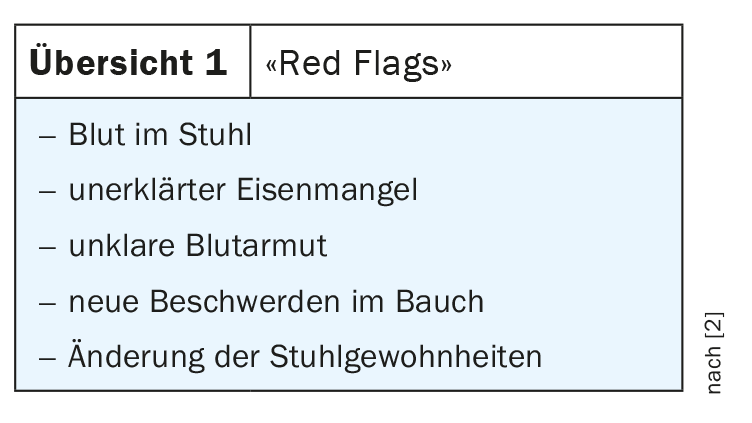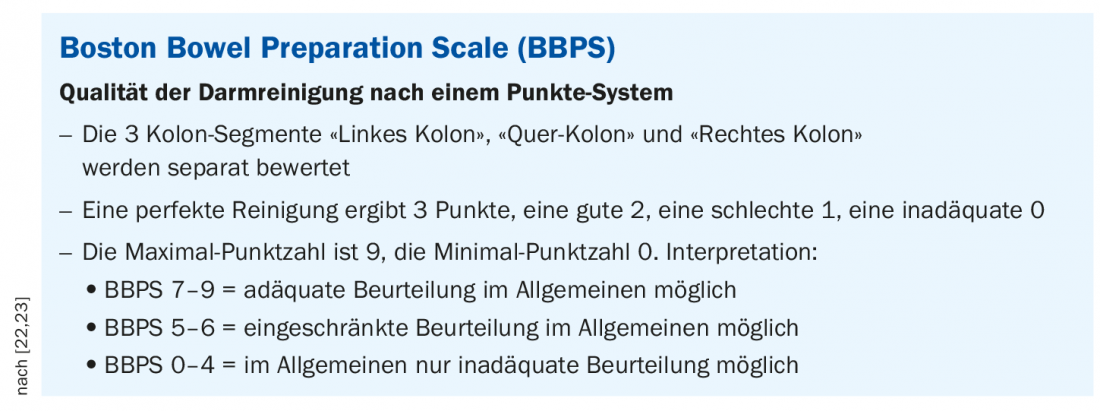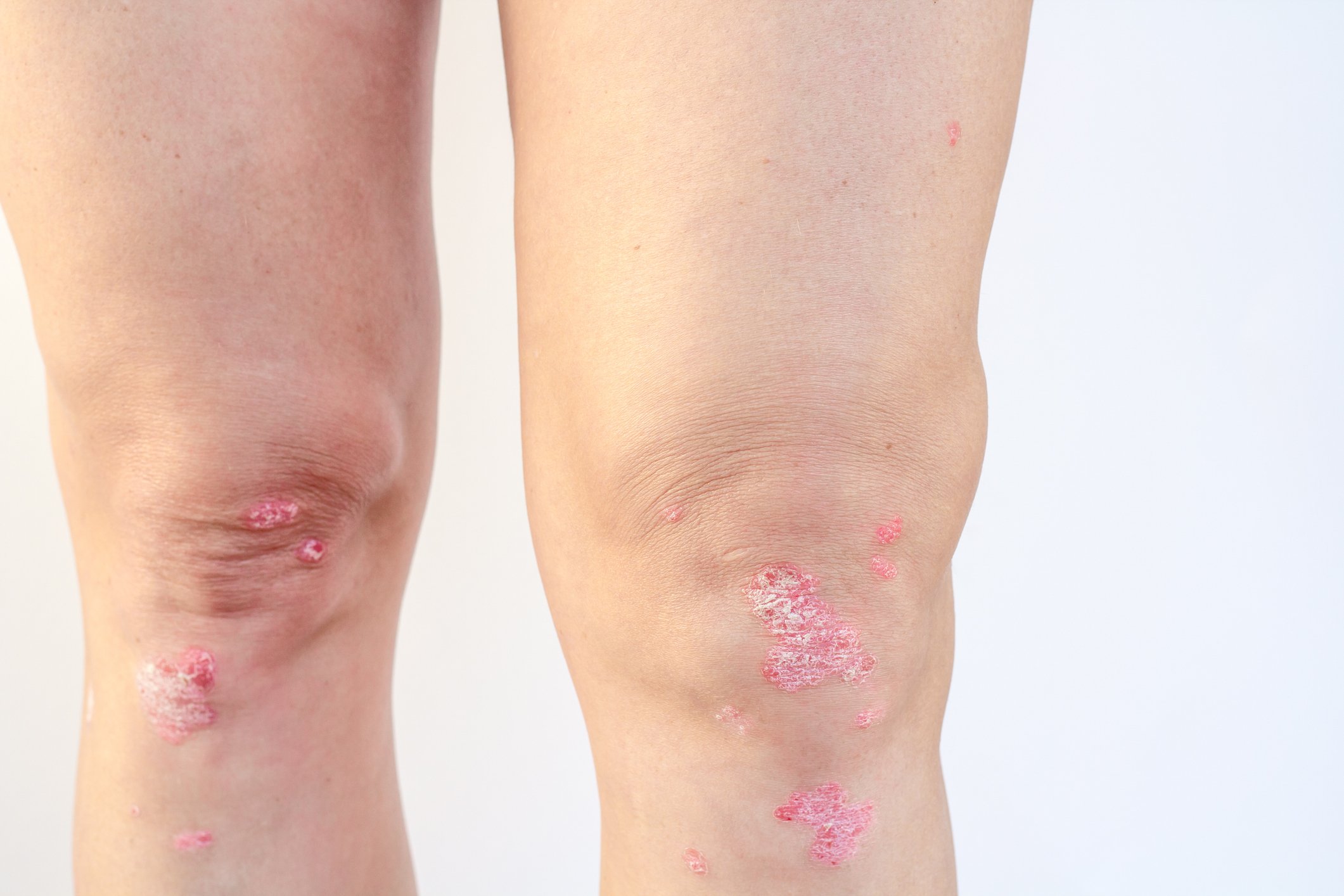Colonoscopy is an important screening procedure to detect and remove adenomas and polyps that can potentially lead to colorectal cancer. For several years, a high adenoma detection rate has been considered an important criterion for screening colonoscopy. To assess the quality of bowel preparation, the Boston Bowel Preparation Scale can be used.
Carcinoma of the colon or rectum (colorectal carcinoma) is the third most common cancer in men and the second most common cancer in women in Switzerland [1]. 4300 people are diagnosed with colon cancer in this country every year, and most of those affected are over 50 years old [1]. In Switzerland, mandatory health insurance covers two colonoscopies at an interval of ≥10 years or a fecal immunochemical test (FIT) at an interval of ≥2 years between the ages of 50 and 69. In case of a positive finding in the FIT, an endoscopic examination of the entire colon should be performed. Screening colonoscopy is used for early detection of colorectal cancer and resection of colon polyps. In high-risk patients and/or suspicious symptoms (overview 1) , colonoscopy may be indicated outside this age interval [2]. Colonoscopy with sampling biopsies has the highest sensitivity and specificity of all examinations and thus represents the diagnostic gold standard. That colonoscopy can reduce the incidence of colorectal cancer and mortality rates was shown, for example, in the non-randomized “closed cohort” study in Swiss mountain cantons [3]. And in Germany, the prevalence of colorectal cancer has decreased significantly in the 55-84 age group since the introduction of health insurance-approved screening colonoscopies in 2002: by 17-20% in men and 20-26% in women [4].

Adenoma Detection Rate (ADR)
According to WHO, effective screening measures should be documented through quality assurance [5,6]. A position paper of the European Society for Gastrointestinal Endoscopy (ESGE) lists the currently recommended “performance measures for lower gastrointestinal endoscopy” [7]. These are parameters that have been shown to be associated with better outcomes. In large cohort studies, adenoma detection rate (ADR) in particular was associated with both lower incidence and mortality of colorectal cancer [8,9]. The target ADR is 25%, based on the fact that a cut-off value of 24.6% was associated with the lowest colorectal cancer mortality [10,11].

Preparation quality: “Boston Bowel Preparation Scale” (BBPS)
Detection of adenomas is significantly dependent on visualization of the entire colonic mucosa. Therefore, in addition to high ADR, it is important to achieve adequate preparation quality and sufficient cecal coverage. For this purpose, the use of a validated scoring system is recommended, such as the Boston Bowel Preparation Scale(box) [12,13]. The preparation quality of the assessed colon should be at least intermediate [8, 14]. It is recommended to aim for a high rate of colonoscopies that are pre-scoped to the cecum, as a low cecal reach rate is associated with a higher incidence of colorectal carcinoma (both distal and proximal) [15]. Currently, the minimum standard is stated to be a cecal reach rate ≥90%, with a rate ≥95% considered optimal [16]. To ensure that polyps are completely ablated, ESGE specifies a guideline-compliant ablation rate of at least 80%. This means that polyps <10 mm should be ablated with the cold snare and ≥10 mm with the hot snare [17]. Inadequate polyp ablation technique is responsible for up to 25% of colorectal cancers after screening colonoscopy (post-colonoscopy colorectal cancer, PCCRC) [18].

Follow-up after polypectomy
Colonoscopy is considered a very safe procedure. Studies report a complication rate of approximately 0.3-0.5 per 1000 examinations [19]. Complications occurring during the examination and events occurring after colonoscopy, such as hospitalizations or 30-day mortality, must be documented according to ESGE [16]. Regarding patient compliance, it is important to minimize pain and discomfort during colonoscopy. While there is currently no established standard for patient satisfaction, experience has shown that effective sedation practices during colonoscopy can help improve patient experience [20]. After screening colonoscopy, proper management with any follow-up colonoscopies is essential. This is because only with adequate follow-up after polypectomy can any newly grown or incompletely resected polyps be removed. The European Society for Gastrointestinal Endoscopy recommends that patients in whom high-risk polyps have been detected should undergo a repeat colonoscopy after 3 years. In patients without high-risk polyps, another colonoscopy is considered reasonable after 10 years. The definition of high-risk polyps was updated in 2020 [21]. Accordingly, follow-up should only occur in patients who have at least one adenoma with high-grade dysplasia or a size ≥10 mm or in patients who have ≥5 adenomas or who have at least one serrated polyp with dysplasia or a size ≥10 mm.
Literature:
- Swiss Cancer Screening, www.swisscancerscreening.ch, (last accessed Nov. 03, 2022).
- “Detecting colorectal cancer early: What makes sense?” Prof. Dr. med. Benjamin Misselwitz, Clinic for Visceral Surgery and Medicine, Inselspital Bern, 07.05.2022
- Manser CN, et al: Colonoscopy screening markedly reduces the occurrence of colon carcinomas and carcinoma-related death: a closed cohort study. Gastrointest Endosc 2012; 76(1): 110-117.
- Brenner H, et al: Decline in incidence and mortality of colorectal cancer in Germany. Dtsch Arztebl Int 2016; 113: 101-106; DOI: 10.3238/arztebl.2016.0101
- WHO, https://apps.who.int/iris/handle/10665/330829, (last accessed Nov. 03, 2022).
- Zessner-Spitzenberg J, Waldmann E, Ferlitsch M: Quality assurance in screening colonoscopy in Austria and Europe-wide. J Gastroenterol Hepatol Erkr 2022, https://doi.org/10.1007/s41971-022-00137-w
- Kaminski MF, et al: Performance measures for lower gastrointestinal endoscopy: a European society of gastrointestinal endoscopy (ESGE) quality improvement initiative. United European Gastroenterol j 2017; 5: 309-334.
- Kaminski MF, et al: Quality indicators for colonoscopy and the risk of interval cancer. N Engl J Med 2010; 362: 1795-1803.
- Corley DA, et al: Adenoma detection rate and risk of colorectal cancer and death. N Engl J Med 2014; 370: 1298-1306.
- Rembacken B, et al: Quality in screening colonoscopy: position statement of the European society of gastrointestinal endoscopy (ESGE). Endoscopy 2012; 44: 957-968.
- Kaminski MF, et al: Increased rate of adenoma detection associates with reduced risk of colorectal cancer and death. Gastroenterology 2017; 153: 98-105.
- Calderwood AH, Jacobson BC: Comprehensive validation of the Boston bowel preparation scale. Gastrointest Endosc 2010; 72: 686-692.
- Aronchick C, et al: Validation of an instrument to assess colon cleansing. Am J Gastroenterol 1999; 94: 2667.
- Clark BT, et al: Quantification of adequate bowel preparation for screening or surveillance colonoscopy in men. Gastroenterology 2016; 150:396-e315.
- Baxter NN, et al: Analysis of administrative data finds endoscopist quality measures associated with postcolonoscopy colorectal cancer. Gastroenterology 2011; 140: 65-72.
- Kaminski MF, et al: Performance measures for lower gastrointestinal endoscopy: a European society of gastrointestinal endoscopy (ESGE) quality improvement initiative. Endoscopy 2017; 49: 378-397.
- Ferlitsch M, et al: Colorectal polypectomy and endoscopic mucosal resection (EMR): European society of gastrointestinal endoscopy (ESGE) clinical guideline. Endoscopy 2017; 49: 270-297.
- Robertson DJ, et al: Colorectal cancers soon after colonoscopy: a pooled multicohort analysis. Gut 2014; 63: 949-956.
- Reumkens A, et al: Post-colonoscopy complications: a systematic review, time trends, and meta-analysis of population-based studies. Am J Gastroenterol 2016; 111: 1092-1101.
- Harewood GC, Wiersema MJ, Melton JL III: A prospective, controlled assessment of factors influencing acceptance of screening colonoscopy. Am J Gastroenterol 2002; 97(12): 3186-3194.
- Hassan C, et al: Post-polypectomy colonoscopy surveillance: European society of gastrointestinal endoscopy (ESGE) guideline-update 2020. Endoscopy 2020: 52: 687-700.
- Boston Bowel Preparation Scale (BBPS), www.gastropraxis-sh.ch/fur-aerzte/bbps.pdf, (last accessed Nov. 03, 2022).
- Lai EJ, et al: The Boston bowel preparation scale: a valid and reliable instrument for colonoscopy-oriented research. Gastrointest Endosc 2009; 69(3 Pt 2): 620-625.
- Strum WB: Colorectal adenomas. N Engl J Med 2016; 374: 1065-1075.
HAUSARZT PRAXIS 2022; 17(10): 35-36











